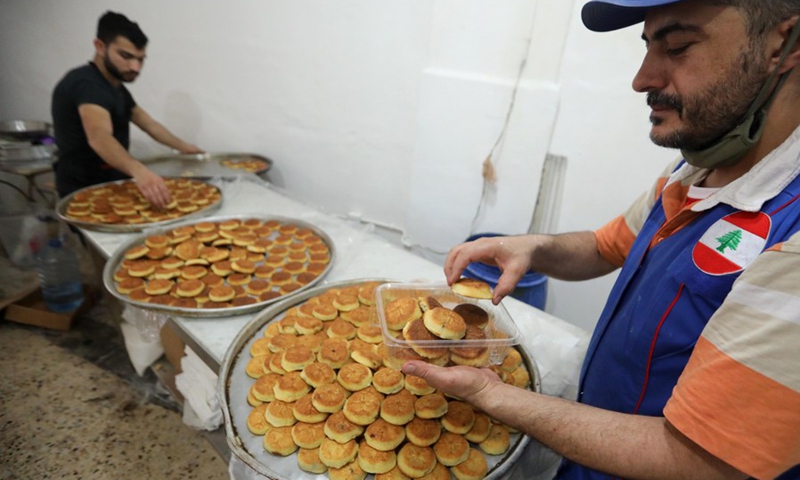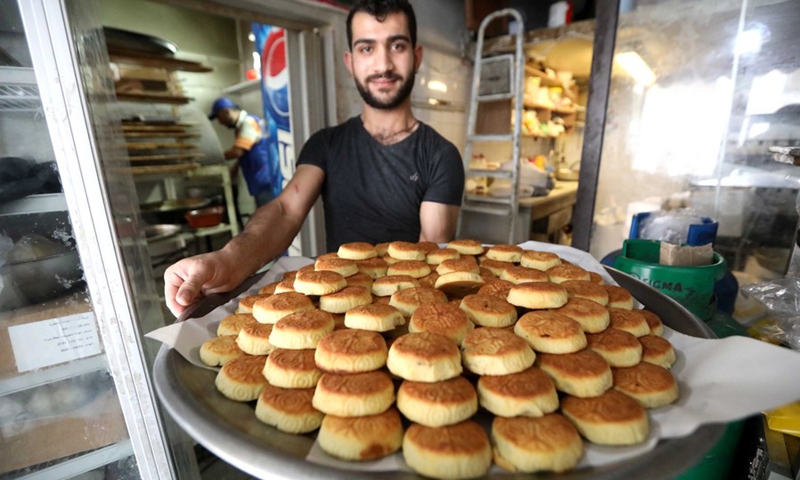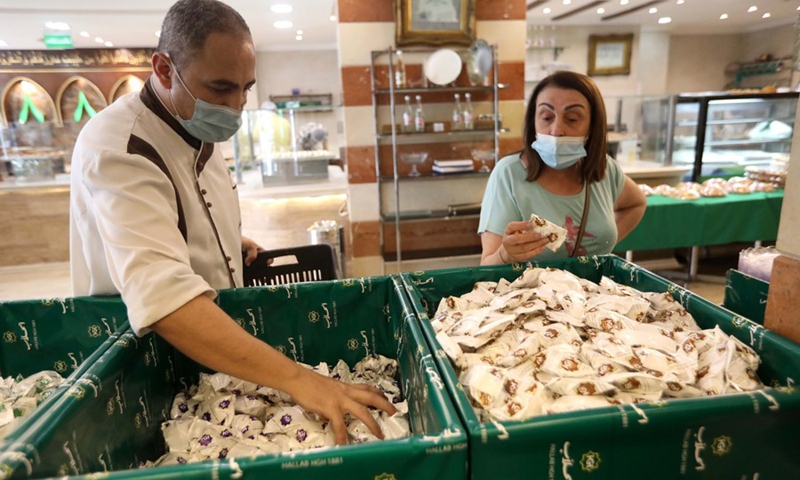More Lebanese shy away from buying "pricey" Eid al-Fitr sweets due to financial crisis

Workers pack Ma'amoul, a special sweet for Eid al-Fitr, at a sweet shop in Beirut, Lebanon, on May 9, 2021.(Photo: Xinhua)

A Ma'amoul maker displays just-baked Ma'amoul cookies at a sweet shop in Beirut, Lebanon, on May 9, 2021.(Photo: Xinhua)

A Ma'amoul maker and a customer are seen at a sweet shop in Beirut, Lebanon, on May 9, 2021.(Photo: Xinhua)
Days ahead of the Eid al-Fitr that marks the end of the holy month of Ramadan, it should have been a tradition for the Lebanese Muslims to flock to confectionaries to buy Ma'amoul, a special sweet served for the upcoming festival of breaking the fast.
However, under the unprecedented financial crisis in Lebanon which has pushed over 50 percent of people into poverty, much fewer customers seem to be willing to squeeze money to buy Ma'amoul this year.
Many have decided to make Ma'amoul at home, or totally abandon this holiday tradition to save money.
Rana Saidi, a mother of four, is one of those who have made such decision. She will invite some friends to bake sweet at home, so as not to deprive her children of this Eid al-Fitr tradition.
"I know a shop selling the ingredients of Ma'amoul at a slightly reduced price," Saidi told Xinhua.
Meanwhile, Khaled Attar, a father of two, has also chosen not to buy Ma'amoul, as he has to save money for other necessities.
A saleswoman at a sweetshop in the capital Beirut told Xinhua that the number of orders she received for Ma'amoul this year is definitely lower than in previous years.
The saleswoman said people only buy half the quantity they used to under the double whammy of the local currency collapse and soaring prices of the raw materials.
"One kg of Ma'amoul used to sell at 45,000 Lebanese pounds (12 U.S. dollars), but its price stands at 70,000 pounds now," she explained.
Most of raw materials in Lebanon are imported. The surge in the U.S. dollar price in the black market caused a tremendous rise in the price of imported goods as well as locals' income shrinkage by more than 80 percent.
Hassan Saghir, a salesman at Haissam Ghazi Hallab sweets store, told Xinhua that demand at his store dropped by 40 percent during this Eid al-Fitr season compared to previous years.
"We used to sell tens of thousands of Ma'amoul pieces, but today most of the customers ask about prices and many of them leave without buying," said Mohammad Sharafeddine, owner of a sweetshop in Tripoli, the second largest city in Lebanon.
